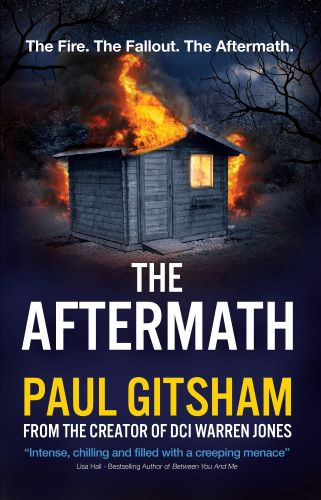Spoiling The Surprise.
Referencing earlier events in your series.
So said an editorial note on my latest manuscript.
My editor was referring to a very significant occurrence that happened in an earlier story that still has repercussions several books later. To avoid spoilers it shall be referred to from herein as ‘the big event’.
My instinct, like a lot of writers, is to clutch my secrets close to my chest. I spend a lot of time working out exactly how and when to make key revelations in my novels. Like many authors I despair at Amazon’s steadfast refusal to takedown, edit, or even flag with a spoiler tag, instances where the reviewer has literally given away the big twist in the book. I want the reader to be surprised, and so naturally, I’m not going to write on the blurb “don’t worry folks, it all comes right in the end” or “heads-up people, get the tissues ready, because your favourite character isn’t going to make it past chapter 52!”. Feedback from readers suggests that ‘the big event’ took them by surprise, and evoked the emotions that I wanted from them. Good!
The problem of course is that I write a series and all books set after ‘the big event’ are impacted by it. The status quo changed in a way that can’t be undone. In a TV show, it is increasingly common for there to be a sixty-second recap before the opening credits. That’s fine if your audience watches each episode in sequence and doesn’t miss one. In these days of catch-up and on-demand, that’s pretty much the norm now. The recap won’t spoil anything that has happened in previous episodes, as you’ve already seen them. Rather it is an aide memoire.
But books aren’t like that. For everyone following your books as they are released, or who decides to seek out book 1 & 2 in the series before diving into book 3 which they bought as it was on sale, there are readers who bought that reduced copy of book 3 and started reading it immediately.
And there in lies every writer’s dilemma. How do I refresh the memories of previous readers of my series about ‘the big event’ – which they may have read several years ago – without ruining ‘the big event’ for those reading out of sequence, who might then decide to go back and read the book it actually happened in?
This exact situation occurred to me recently for a different ‘big event’. For this summer’s book, I enlisted another beta reader. When I sent them the manuscript for Warren Jones 7, they happened to be partway through reading Warren Jones 6, A Price to Pay, which had just come out in paperback. Keen to help out, they immediately put aside book 6, and started book 7. Unfortunately, they had stopped book 6 whilst the characters were facing a crisis that could have gone either way. It’s pretty clear early on in book 7 how that crisis was resolved. I felt a little sad that somebody willing to take the time to help out with a series they enjoy was inadvertently denied a small part of that enjoyment.
Ultimately, I value all of my readers. Whether they have been with me for ten books since 2014, or they just downloaded a copy of whatever was on sale that week, willing to try a new author, I want to serve them both.
So, if you are a series writer, you need to consider how to address this.
How much detail will you include in later books? The presence or absence of a character in future books will inevitably hint at the outcome of any mortal situation that you place them in in any earlier books. How will you deal with that? Do you just gloss over it and never mention it? You can do that with a minor character, but it will seem strange to loyal readers if a major character is bumped off in book 6 and then apparently written out of history, never to be mentioned again. And I dare say that if a reader joins the series at book 7 and enjoys it so much they decide to buy your back-catalogue, they are gong to be somewhat confused also.
Sometimes, you can’t avoid the elephant in the room, but you don’t have to describe exactly what happened, or even when. You don’t have to say,
“The team still missed Beauregard. His violent stabbing at the hands of Mrs Blenkinsopp, the unlikely serial killer who terrorised the neighbourhood six months ago, had been unexpected; coming as it did at what they thought was the end of the investigation, the man she successfully framed behind bars, lulling Beauregard into a false sense of security…”
You have well and truly spoiled whatever book was set 6 months ago.
Instead, keep it vague.
“The loss of Beau remained raw, the team still mourning him.”
All that tells you is that he was (probably) killed relatively recently. It could have been in the previous book, or the one before it. It may have happened at the start or the end, and the circumstances are yet to be discovered by new readers. Hopefully, this simply adds a little frisson of foreshadowing. Inevitably, every time poor Beauregard is placed in danger in earlier books some readers will now wonder is this it? But that anticipation might be a good thing. For returning readers, this is hopefully just a trigger to remind them why Beauregard has yet to make an appearance five chapters in.
So accept that you will need to risk ruining the surprise sometimes. It is unfortunate, but with careful writing you can still give readers new and old the experience that they deserve.
Do you write a series? How have you dealt with on-going storylines?
Feel free to comment here or on social media.
Until next time,
Paul




















